Let’s Move Together: Supporting Well-being Through Exercise at CAS
Men’s Wellbeing Session with Cartwheel Arts
Men’s Wellbeing Session with Cartwheel Arts
At Caring and Sharing, our mission is built on compassion, but compassion isn’t just something we extend outward. It’s something we practice inward, too.
Every day, we walk alongside asylum seekers, refugee seekers, the BAME community, seniors, carers, and others who need a place of safety, solidarity, and support. Through immigration drop-ins, women’s wellness sessions, digital skills classes, ESOL, and the beloved Friends of Shamwari, we hold space for healing, empowerment, and growth.
But in doing this life giving work, we’ve learned a difficult but necessary truth: If we don’t take care of ourselves, we won’t be able to take care of anyone else.
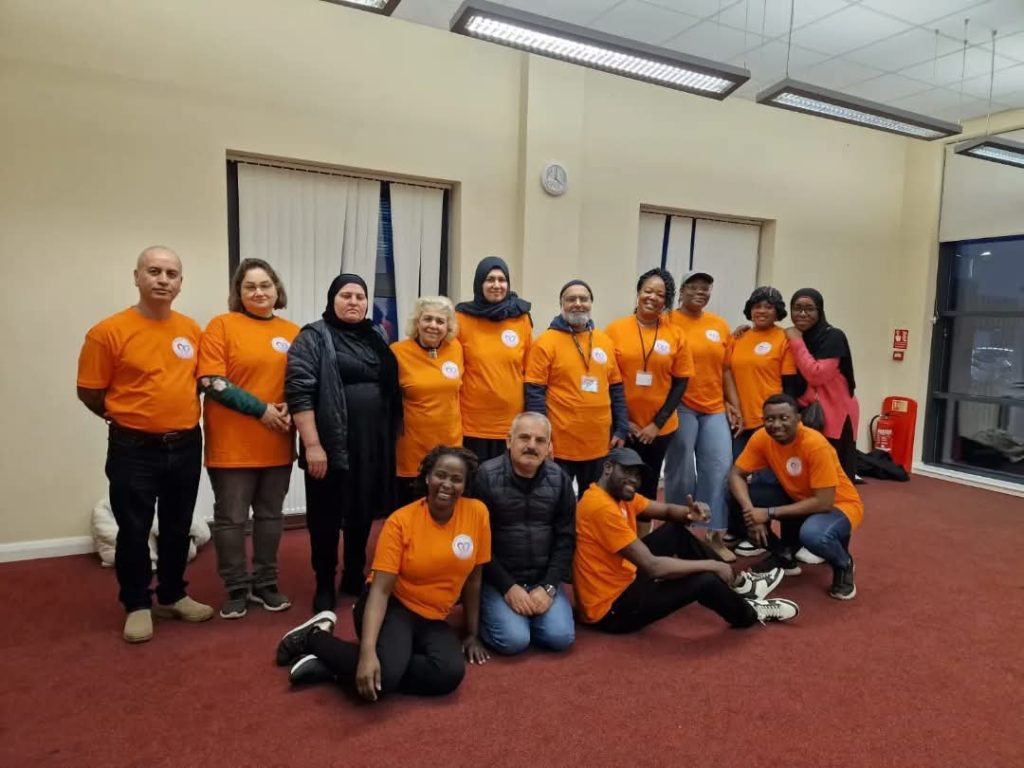
When Compassion Becomes Too Heavy to Carry Alone
Let’s be real: the emotional weight of community work is no joke. It’s not just the hours or the paperwork, it’s the stories we carry, the systems we navigate, the urgency we feel when someone’s safety is at stake. Even the most passionate among us can hit a wall.
But at Caring and Sharing, we’ve decided: burnout is not the price of making a difference. We’ve put intentional strategies in place to help our team stay grounded, protected, and energised, so we can keep doing what we do best, without burning out in the process.
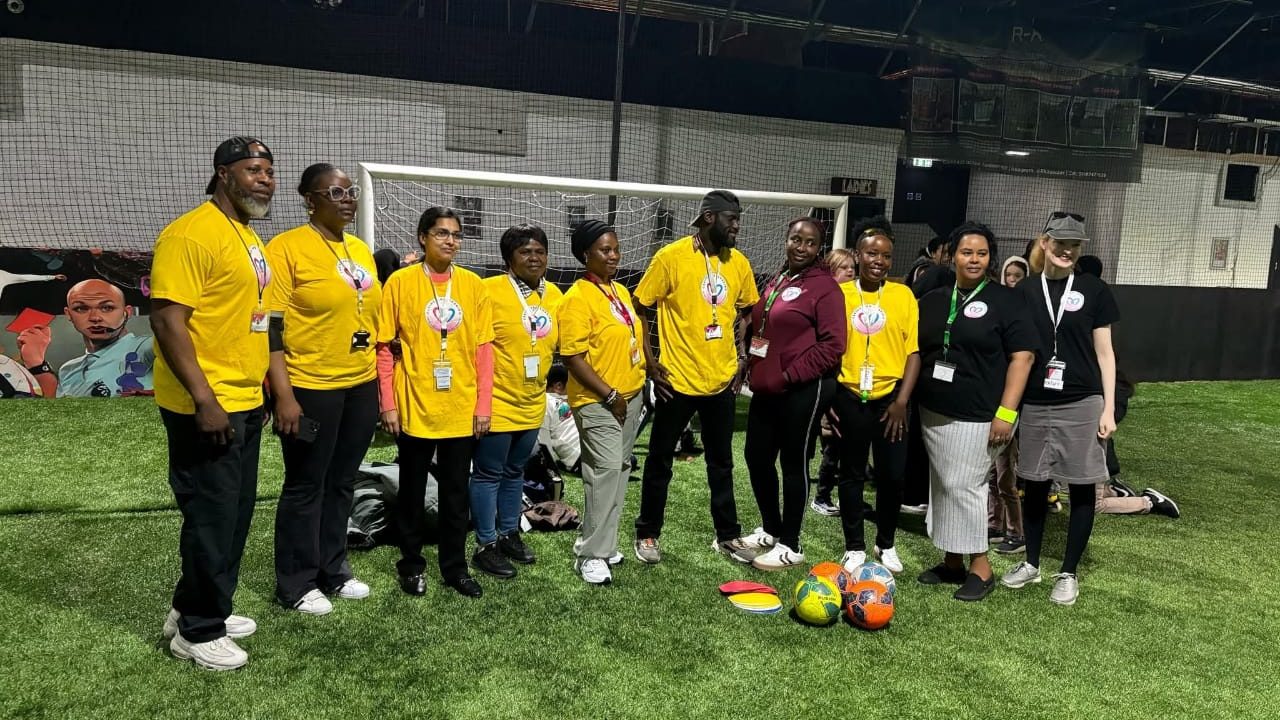
How We’re Protecting Our People While Serving Our Purpose
Here’s how we care for ourselves as we care for others:
1. We Talk About It – Openly, Honestly, Often
We’ve created safe internal spaces where team members can say, “I’m struggling,” without fear or shame. Whether it’s during team meetings, informal chats, or reflection sessions, we encourage real talk about emotional health. Vulnerability isn’t a weakness, it’s a strength that keeps us connected.
2. We Honour Boundaries
We respect that our team members are whole people, not just roles or job titles. We encourage clear working hours, proper breaks, and taking time off when needed. Nobody is expected to be “on” all the time. We don’t glorify burnout, we shut it down before it starts.
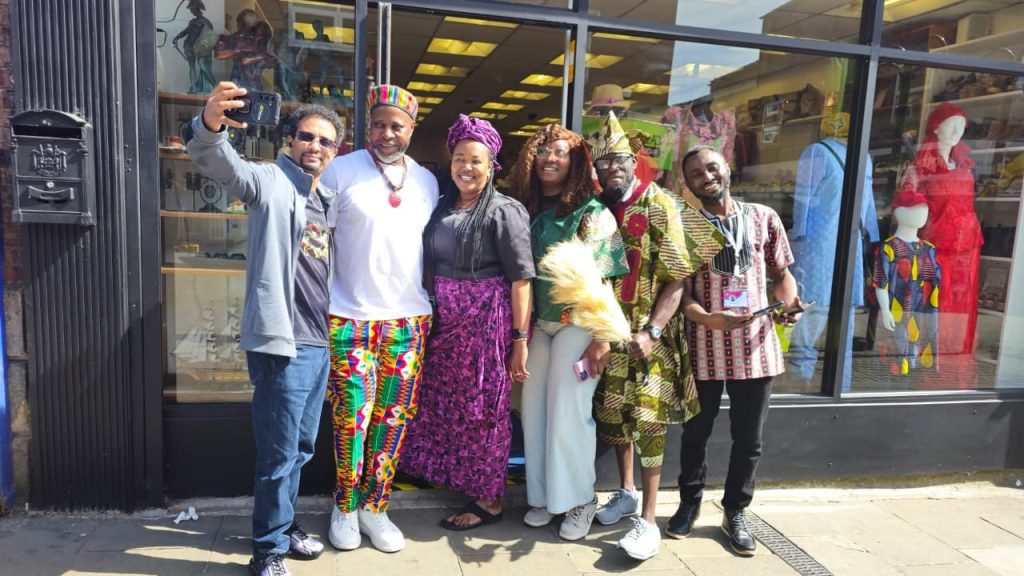
3. We Prioritise Peer Support
There’s healing in shared experience. That’s why we’ve created relaxed spaces, like our monthly tea and chat circles where volunteers and staff can talk, decompress, or just sit in solidarity with one another. It’s not always about problem-solving. Sometimes it’s about simply being seen.
4. We Say No to Martyr Culture
Doing good shouldn’t mean running yourself into the ground. We actively challenge the narrative that says “the more exhausted you are, the more committed you must be.” We celebrate sustainability, not sacrifice. This work is a marathon, not a sprint.
5. We Invest in Our Own Wellbeing
We’re intentional about putting care resources in-house. That means making room for things like mindfulness practices, reflective supervision, access to counselling, and designated wellness time. These aren’t extras, they’re essentials.
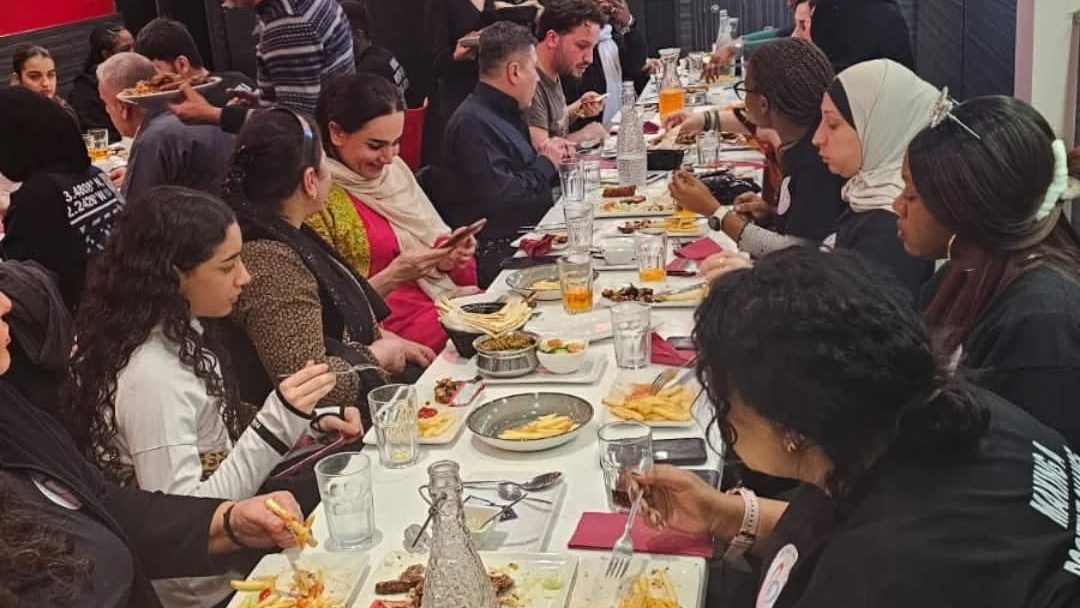
6. We Celebrate Ourselves, Loudly and Often
It’s easy to focus only on the crises, but we’ve learned to pause and celebrate the wins, big and small. Whether it’s someone mastering basic English, a successful referral, or a heartfelt “thank you,” we take time to honour those moments. They fuel us. They remind us why we’re here.
Why This Matters
Because at Caring and Sharing, we know that our people are the heartbeat of this mission. Our staff, our volunteers, our community leaders, are essential. And so, we protect that. When helping starts to hurt, we don’t ignore the pain. We listen to it. We slow down. We regroup. We support one another. Because healing communities begins with healing ourselves.
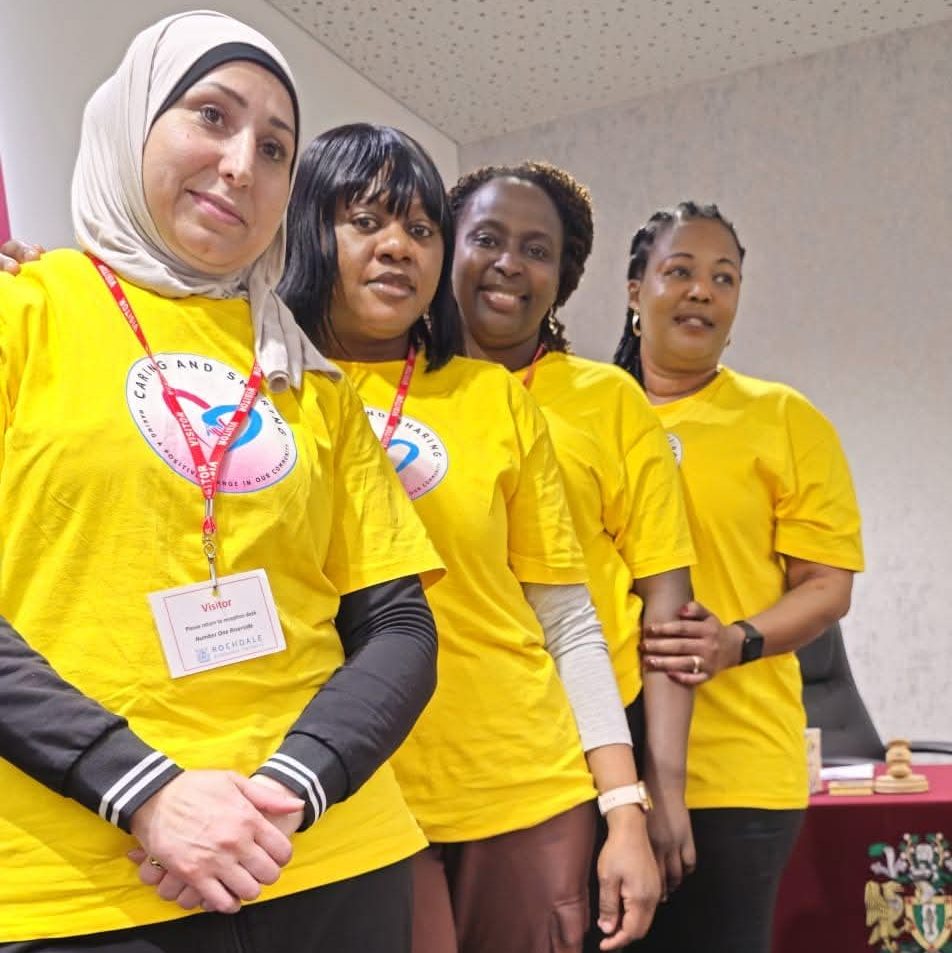
So here’s our invitation to everyone doing this work with us: Take care. Speak up. Rest without guilt. Because when we thrive, our community does too. And that’s the future we’re building, together.
Lifelong learning is more than just a buzzword; it is the ongoing, self-motivated pursuit of knowledge and skills throughout one’s life. In our world today, change is the only constant, and if you are not moving as technology advances and trends change, you might just wake up one day and discover how far behind you are in the race to be valuable. Hence, lifelong learning stands as a beacon of personal and professional growth, adaptability, and overall wellbeing. Here, you will glean insights into the importance of lifelong learning, its myriad benefits, and practical ways to integrate it into our daily lives.
There are several benefits of lifelong learning but amidst all of them, we have sectionized how your choice to keep learning makes impact on your life and success.
In a competitive job market, continuous learning helps individuals stay current with industry trends and technologies. It enhances skills, making one more competent and capable in their roles, thereby opening doors to career advancement and job security. For instance, professionals who regularly update their skills through certifications and courses often find themselves better positioned for promotions and new job opportunities.

Learning new things keeps the mind active and engaged. It promotes cognitive health, helping to stave off mental decline associated with aging. Engaging in activities such as learning a new language, playing a musical instrument, or exploring a new hobby can bring immense personal satisfaction and a sense of achievement.
Lifelong learners are better equipped to navigate and adapt to change. Whether it’s adapting to new technologies, shifting career paths, or personal life changes, those committed to continuous learning can handle transitions with greater ease. During the recent global pandemic, many professionals who embraced online learning adapted quickly to remote work and new digital tools and they could easily boost of progress even in this perilous time.
Learning in group settings, such as classes or workshops, provides opportunities to meet new people and build social connections. These interactions can lead to collaborative learning experiences and long-lasting friendships. Community classes, book clubs, and online forums are excellent ways to engage with like-minded individuals and expand one’s social network.
You might be wondering how to continually learn despite your tight schedule and the number of things that require your attention on a daily basis. And you might also feel like you’re learning from your activities which is absolutely true, however, a little bit of structure can properly put into perspective what you’re learning and going ahead to obtain a certification of what you already know is a major step in the right direction. Let’s take a look at how you can learn everyday!
Identify areas of interest and set SMART (Specific, Measurable, Achievable, Realistic, and Timely) goals. This provides direction and motivation for continuous learning. For example, if you are interested in digital marketing, you could set a goal to complete an online certification course within six months and if you only need a certificate, it will take a shorter time.

The internet offers a vast array of learning resources, from online courses and tutorials to educational videos and podcasts. Platforms like Coursera, Udemy, Khan Academy, and LinkedIn Learning provide access to courses on virtually any topic imaginable. Listening to podcasts or watching TED Talks during commutes or free time can also be an excellent way to incorporate learning into your daily routine.
Participate in local or online learning communities to connect with others who share similar interests and goals. These communities offer support, resources, and networking opportunities that can enhance your learning experience. Joining a local coding bootcamp, a book club, or an online forum related to your field of interest can provide motivation and a sense of camaraderie. Organizations like Caring and Sharing Rochdale also build learning communities where you can choose to grow in any area that you choose.
Stay curious and open to new experiences. Ask questions, explore new topics, and seek out learning opportunities in everyday life. For instance, visiting museums, attending public lectures, or exploring nature can spark curiosity and provide informal learning experiences.
Despite its benefits, many people face barriers to lifelong learning, such as time constraints, financial limitations, and lack of access to resources. Here are some strategies to overcome these obstacles.
Prioritize learning by setting aside dedicated time each day or week for it. Even short, consistent study sessions can lead to significant progress over time. Use tools like calendars and planners to schedule learning activities, ensuring they become a regular part of your routine.
Seek free or low-cost learning opportunities. Many online platforms offer free courses, and local libraries often provide access to educational resources. Scholarships, grants, and employer-sponsored training programs can also help alleviate financial burdens associated with learning.
Leverage community resources such as public libraries, community centers, and local universities, which often offer free or affordable classes and workshops. Utilize online resources, open educational resources (OER), and Massive Open Online Courses (MOOCs) that provide access to high-quality educational content at no cost.

Lifelong learning is not just a concept but a vital practice for personal and professional development, adaptability, and overall wellbeing. In fostering a culture that values and promotes lifelong learning, we can empower ourselves and others to thrive in an ever-changing world.
Some of the most beautiful art and innovation come from imperfections and mistakes. Think of how many famous paintings have ‘flaws’ that make them unique, or how many scientific breakthroughs happened by accident.
Effective communication isn’t just about talking; it’s about listening, understanding, and connecting. Listening is more than just hearing words; it’s about understanding and valuing the other person’s perspective.
While World Sleep Day may have come and gone, the significance of quality sleep remains as vital as ever. Sleep isn’t just about catching Z’s; it’s a dynamic process crucial for our overall well-being. Research shows that during sleep, our brains undergo essential processes like memory consolidation and the release of growth hormones vital for tissue repair.
But the benefits of sleep extend beyond our brains. Adequate sleep has been linked to improved immune function, reduced inflammation, and a lower risk of chronic diseases like heart disease and diabetes. It’s no wonder health experts recommend getting at least seven hours of sleep each night, regardless of our daily grind.
Let’s delve into why sleep deserves the spotlight, even after World Sleep Day. From enhancing social interactions to boosting memory and reducing the risk of illness, the benefits of quality sleep are profound and far-reaching. So, prioritize your sleep—it’s the foundation of a healthier, happier life.